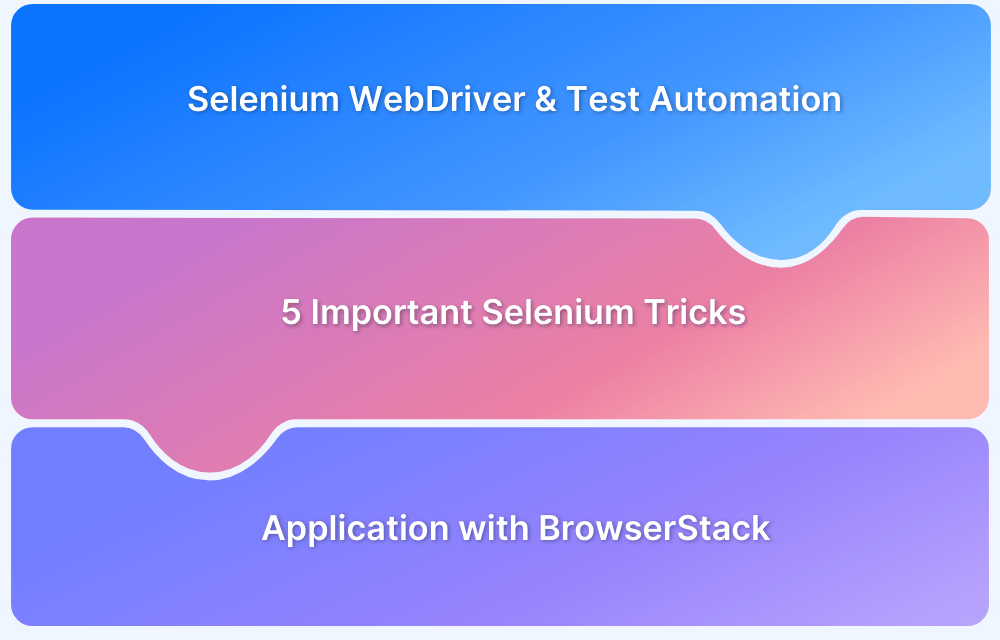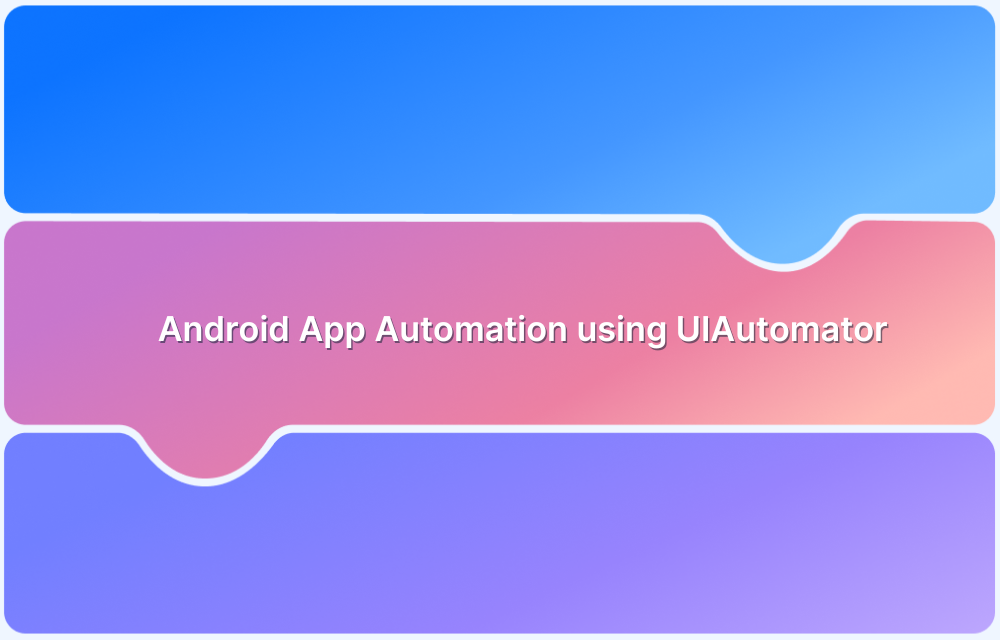Selenium has become, without a doubt, the most prominent and reliable framework for automated software testing and browser automation. One of the primary reasons for its popularity is the fact that Selenium is released under the Apache 2.0 open-source license. This means that it is available for free to download on the internet, and QAs across the globe can leverage it to test their web-applications without any restrictions.
Selenium offers a few useful features, among which the two most notable are:
- Support for almost all popular programming languages (Java, Python, Ruby, etc.)
- To learn more, read the tutorial on Selenium Test Automation using Java
- Also, read the guide on Selenium Test Automation using Python
- Compatibility with all leading web browsers (Chrome, Firefox, Safari)
Despite this, certain myths regarding the Selenium framework persist among the QA community. This article aims to debunk those myths so that testers may be aware of the facts and implement better testing methods.
Overview
What is Selenium?
- Open-source framework for browser automation and web application testing.
- Supports multiple programming languages: Java, Python, Ruby, C#, etc.
- Compatible with all major browsers: Chrome, Firefox, Safari, Edge.
Common Myths & Facts
Myth 1: Selenium is open-source, so it has limitations
- Fact: Community contributions provide extensive features, plugins, and support.
- Open-source does not mean inferior functionality.
Myth 2: Selenium isn’t enterprise-ready
Fact: Selenium is maintained by Apache Software Foundation with advanced features suitable for enterprise-grade testing.
Used by global companies for scalable automation.
Myth 3: Open-source Selenium rarely gets updates or bug fixes
- Fact: Active global contributor community ensures regular updates, bug fixes, and feature enhancements.
- Continuous improvements keep Selenium competitive with premium tools.
Myth 4: Selenium compromises security
- Fact: As an ASF-maintained framework, Selenium follows strong security protocols.
- Safe for automated testing without compromising sensitive data.
Key Benefits of Using Selenium
- Cost-effective: Free and open-source.
- Flexible: Works with multiple languages, browsers, and platforms.
- Reliable: Regular updates and community-backed solutions.
- Scalable: Suitable for enterprise automation needs.
This article aims to debunk those myths so that testers may be aware of the facts and implement better testing methods.
#Myth 1: Selenium is open-source. Therefore, it has certain limitations
When it comes to software tools or frameworks, developers or QAs tend to believe that proprietory paid tools provide better features and facilities as compared to their open-source counterparts. However, this is not true in most cases. Selenium has firm community support from contributors sharing their work from across the globe. QAs can find all required features and support from these communities. Thus, QAs should not pay attention to this stereotype associated with open-source frameworks.
#Myth 2: Selenium framework is not enterprise-worthy
In spite of being the most desired framework for automated UI testing, some users still end up purchasing expensive tools. This is because many community members perceive that Selenium is not enterprise-worthy just because it’s a free tool. This is utterly false as Selenium is a product of the Apache Software Foundation (ASF). It comes bundled with numerous advanced features and benefits, which makes testing extremely convenient for the QAs.
#Myth 3: As Selenium is open-source, bug fixes and updates are rare
This is another widely existing myth among the QA community and is not just restricted to Selenium, but to most open-source software or resource available. Software professionals tend to opine that open-source software lacks bug fixes or updates when compared with premium versions of the software. Again, this is not true as any open-source software is made available to expert communities across the world. This enhances remote collaboration among developer communities. It leads to individuals contributing by recommending improvements, bug fixes, and providing critical updates.
Large tech-driven communities work together to leverage good ideas. Such widespread exposure helps open-source frameworks deliver competitive features. Open-source resources, in fact, provide opportunities for expert individuals to translate innovative ideas into reality. These innovations are usually critical updates or features for the specific software or framework. Selenium, too, has firm community support from contributors across the world. Even today, Selenium WebDriver continues to progress continually towards being the comprehensive browser automation tool.
Myth 4: Being open-source, Selenium compromises with security
For every organization that depends on tech, security constraints are a massive priority.
Obviously, not every open-source software or resource guarantees the best security. However, for a test automation framework like Selenium that comes from a reputed open-source organization like Apache Software Foundation, this does not apply. Selenium is known for being equipped with more than adequate security protocols. It does not compromise on the security of any individual, organization, or it’s critical information. Teams can use Selenium to perform automated Selenium testing efficiently without worrying about any security threats.
It is critical that testers rid themselves of misconceptions and unjustified stereotypes related to Selenium. By doing so, they can use a free, effective framework for automated testing by harnessing its full potential. This translates to lower costs, better results and eventually, superior software development.
Selenium as a framework is thus robust and helps ensure comprehensive automated testing. Another critical element is to run these tests on real devices and user conditions. Products like BrowserStack Automate help QA testers to run their Selenium tests on a real device cloud. This ensures that the test results are accurate and close to real user conditions.






